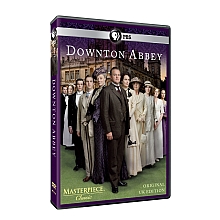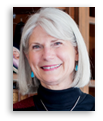 I confess. I arrived late to the Downton Abbey party. When season one began I was intrigued, but Sunday nights didn’t work for me. Then everyone was watching it and my contrarian instincts kicked in: Who wants to watch what everybody’s watching? When season two began I told myself I didn’t want to jump in to the thing midstream.
I confess. I arrived late to the Downton Abbey party. When season one began I was intrigued, but Sunday nights didn’t work for me. Then everyone was watching it and my contrarian instincts kicked in: Who wants to watch what everybody’s watching? When season two began I told myself I didn’t want to jump in to the thing midstream.
And then a friend emailed a nudge and a link, I got over the fact that I couldn’t pick up season one online and I settled in to watch Downton Abbey, Season Two, episode one. Within minutes, a huge cast of characters paraded across the screen: two people in a train station, another fighting in World War I, a host of titled Brits and lowly servants living on a fabulous estate… As I struggled to sort them all out, I felt as if I were drinking from a fire hose. Two questions needed to be answered: First, who are all of these people? And second, do I care what happens to them?
By the end of that first Season Two episode, I knew every one of the characters and I cared very much where the story took them. Which is to say that Downton Abbey has passed my writer’s test and I’m hooked.
Edith Wharton, whose novels were set in the Downton Abbey era, complained bitterly about the “modern” novelists who didn’t seem to know how to tell a proper story. She was particularly dismissive of James Joyce and his blockbuster novel Ulysses (see The Brave Escape of Edith Wharton, pp. 136-37). More recently, Julian Bell has observed that, in the modern era, it is “impossible either to tell a proper story or to abandon the impulse to do so.” I think the Downton Abbey series has been so warmly received because it answers that need in all of us for a truly right and proper story. Perhaps we are all hoping that if a proper story can be told as brilliantly as the Downton Abbey story, the rather more messy and confusing narratives of our own lives might come out properly as well.
—
The Brave Escape of Edith Wharton
By Connie Nordhielm Wooldridge
Edith Wharton, author of Ethan Frome, The House of Mirth, and other acclaimed novels, was born into a wealthy New York City family during the Gilded Age. In fact, she was a Jones of “keeping up with the Joneses” fame. This anecdote opens Woodridge’s biography of an astonishing life. Beginning in childhood, Edith found ways to escape from society’s and her family’s expectations and follow an unconventional, creative path. Unhappily married and eventually divorced, she surrounded herself with the cultural creatives of her day, mostly male friends. To escape the obligations of New York City high society, she spent much of her life in Paris and was recognized by the French government for her work establishing four charities during World War I. Her literary and personal life, her witty and incisive correspondence, her fondness for automobiles and small dogs–all are detailed in this vibrant account of a woman well ahead of her time. Includes photographs, a bibliography, source notes, and an index.
—
Connie Nordhielm Wooldridge, Author

- Just Fine They Way They Are (Calkins Creek, March 1, 2011)
- The Brave Escape of Edith Wharton (Clarion Books, 2010)
- Thank You Very Much, Captain Ericsson! (Holiday House, 2005; Berndtsdotter Books, 2012)
- When Esther Morris Headed West (Holiday House, 2001)
- The Legend of Strap Buckner (Holiday House, 2001)
- Wicked Jack (Holiday House, 1995)
Speaker / Presenter
Connie is an experienced speaker and presenter who enjoys sharing her passion for writing and her experience as a writer with readers and writers of all ages. She has presented to students, community, civic and professional organizations, writing groups, library audiences, and seniors – wherever book lovers gather!
>> More Information About Connie Speaking and Presenting


